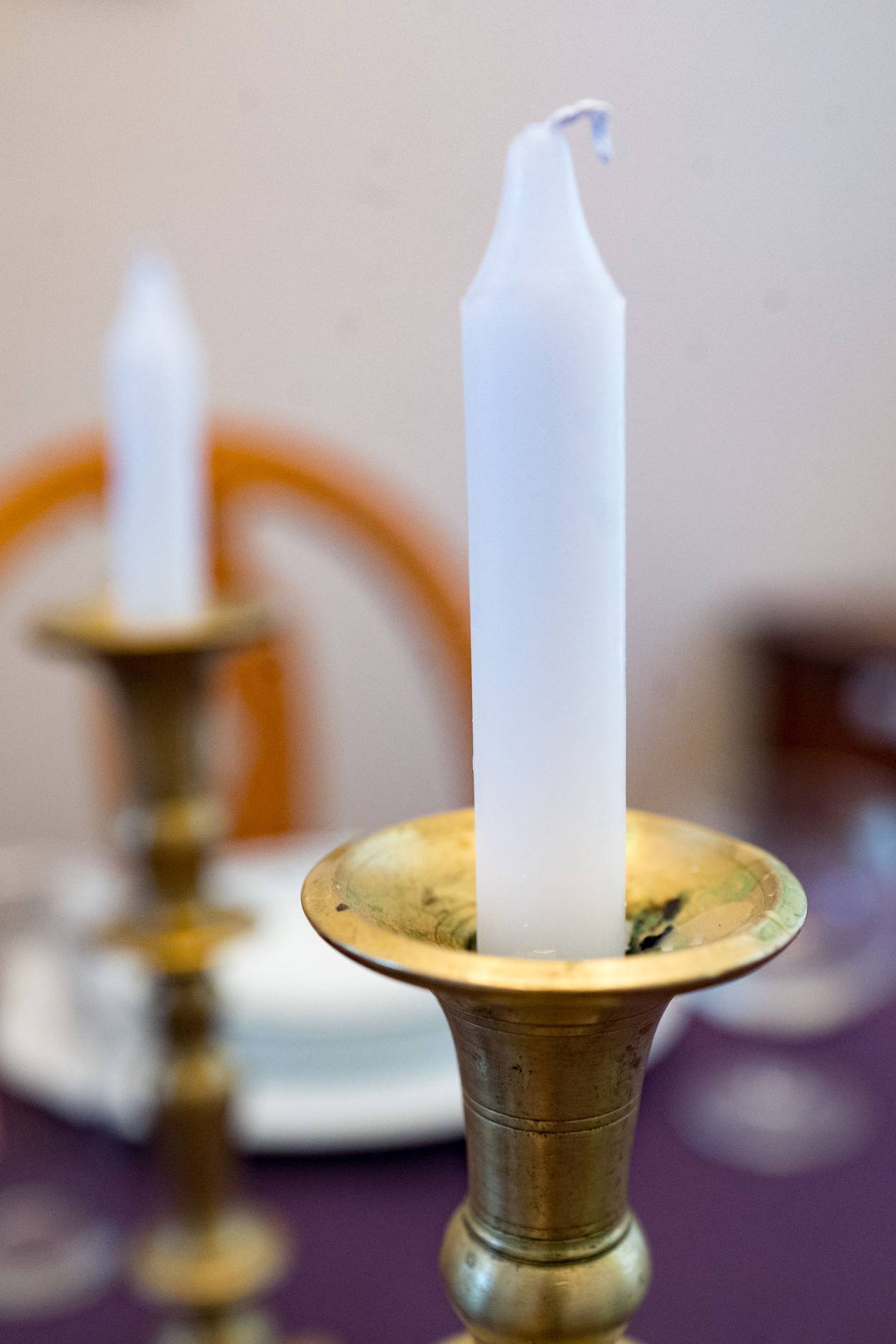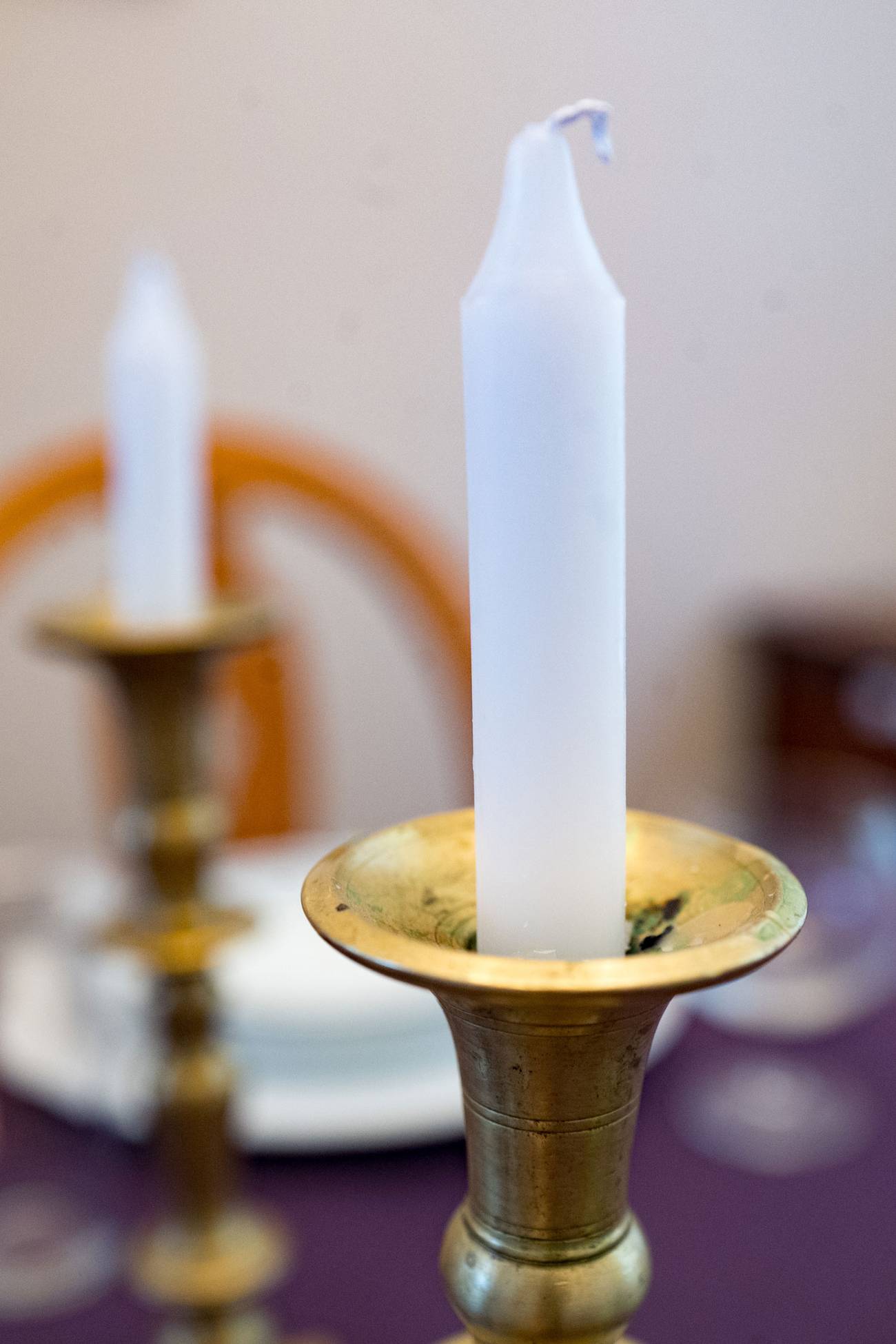One Day More
Moving to Israel translated to losing the ‘second day’ of most Jewish holidays in addition to gaining perspective on their practice

Smith Collection/Gado/Getty Images

Smith Collection/Gado/Getty Images

Smith Collection/Gado/Getty Images

Smith Collection/Gado/Getty Images
Growing up Orthodox outside the Land of Israel meant observing a second day for most Jewish holidays. But making aliyah has meant recalibrating clocks and expectations. Phrases like “first day” and “second day” are now, for me, more an anachronism of place than of time.
As the High Holiday season approaches, sentimental reflections upon celebrating chagim in the diaspora repeatedly make landing. But the winding path of adjustment (or readjustment?) to Israel also weaves together with the spiritual jet lag I feel between my childhood home and my homeland.
The primary symbol of yontif in exile was, most prominently, all those extra hours for activities. When it came to spiritual pursuits, staying up all night learning during “the time of the Giving of our Torah” meant that when I awoke, the holiday wasn’t already practically over. The very existence of raucous Simchat Torah shabbatons in my high school years depended on those bonus 24 hours. And two evenings for retelling the story of the Exodus at Passover created space for more shtick, cute divrei Torah, and melodious singing without the lurking pressure to hastily squeeze everything in.
With the excess time for mundane matters, opening a box of Risk or Monopoly didn’t seem preposterous, since I had an additional day on the horizon. There was absolutely no way I could have gotten sweet carpet burn if I couldn’t play competitive knee hockey with my cousins for two straight days. Ultimately, there was a certain quality to quantity. Allowing myself to become enveloped by extended holiness surely led to an appreciation of its advantages. (But thankfully, the rabbis never ruminated on a two-day Yom Kippur-fest.)
All this does not preclude the particular drawbacks I faced as a resident of chutz la’aretz. For one thing, in the spirit of what King Hezekiah’s scholars recorded, “If you find honey, eat only what you need, lest you fill yourself and throw it up.” (Proverbs 25:16) The two and sometimes three days of feasting—when a holiday fell on a Thursday and Friday, which then led directly into Shabbat—frequently left me feeling overindulged and reluctant to even look at food. Now imagine the symptoms from the ever more popular catered hotel getaway. Furthermore, the pleasure in long afternoon walks, or dancing on Simchat Torah, was tempered by the knowledge that sweat generated today would stick around tomorrow and the next day. The specter of subsisting on Axe spray for cleanliness was a lurking menace. When the occasion for chol hamoyed trips arrived, there were usually fewer days to spare. So each Rosh Hashanah, when even in Israel two days are observed, I vainly comforted myself with the thought that “at least now they will understand how the other side lives.”
Before making aliyah, I visited Israel for a regel or two. Each time, my religious practice during the second day of a holiday represented an attempt to grapple with the fact that yes, I was in the Promised Land, but only as a window-shopper. At first, I was sentenced by the family rabbi to even keep “two days” in Israel, accompanied by an awkward second Seder with Israeli cousins curiously looking on. Later, I was condemned to the bizarre “one-and-a-half days” club, which always required clarification that no, it didn’t mean I could turn lights on after noon, even if in all other respects I wasn’t glorifying the day with special blessings or prayers. All the while, I was left to be envious of my luckier friends who got to pretend to be locals and enjoy another day of chol hamoed for tiyulim. The resulting unpleasant sensations of outsiderness in place of the expected warm and fuzzy ones left an indelible mark.
After I moved to Israel, visiting family abroad who hadn’t made the move entailed a mirror ordeal in strangerhood and alienation. Clearly, fulfilling the ceremonial and positive commandments for the second day was no longer necessary. So I decided to enjoy a few extra glasses of wine the second night of Passover. However, I strictly avoided messing with everyone else’s holy day vibes, even if they preferred I did, which always required clarification that no, being Israeli now didn’t mean that I can turn the light on for them. The wandering melody sung between the verses of birkat kohanim, generally only outside Israel, embodied this tension. Having strolled among the melody every yom tov of my youth, I was transported to familiar territory upon hearing it again in the diasporic time zone. However, it was like reuniting with a former high school friend. On a rational and intellectual level, I accepted the jovial reality of the encounter. Yet, it was impossible to ignore the seemingly unbridgeable chasm of diverging paths and narratives spawned by years of separation. Instead of a place I wished to belong to but didn’t, this was a place where I once belonged but had chosen to leave.
If according to Rabbi Abraham Joshua Heschel, in his book The Sabbath, the Jewish people build palaces in time, the communities of Israel and the diaspora reside in very different wings. For one thing, if calendrical uncertainty first arose out of ineffectual torch communication (Mishna Rosh Hashanah 2:2), it has since inflated into its own corpus, and therefore its own exclusive umwelt. For two day-ers, the surrounding environment and culture can be at best indifferent and at worst hostile to the festival atmosphere. Certainly, the contemporary tendency to congregate in suburbia allows for the veneer of a wider societal celebration. But even this seal is not hermetic. Internally, the disconnect from the agricultural cycle in Israel, caused by both modern living and the local climate, cannot be ignored. Snow in the sukkah and before the Seder are not improbable. I have been told the discrepancy is even greater in the Southern Hemisphere. Something just feels off. We need to sync (resync?) our celebrations.
In the contentious first-century sectarian debate between the Pharisees and Boethusians regarding the correct date of Shavuot, an elderly Boethusian justified the yearly fixing of the festival on Sunday by claiming that Moses enshrined a long weekend (Shabbat followed by Shavuot on Sunday) to maximize the enjoyment of the Jewish people (Menachot 65b). While any American expat can testify to the benefits of an extra day for errands, the Talmudic discussion outrightly rejects this approach. Based on this, Israelis might characterize the acceptance and tolerance of the holiday arrangement in exile as settling for a comfortable but compensatory galut mediocrity. A possible response might resort to geonic claims of Sinaitic or prophetic precedence for two days of chag (Otzar Geonim Beitzah 4b) to pardon a preference for the unique aspects of this “double time.” In addition, as we are now is not the only way to be. The ever-evolving relationship between a people and their God necessarily carries the baggage of unplanned detours and the passport stamps from places far, far away. It is all part of the package.
So this year, spray on extra deodorant, pile on some more dessert, and take pleasure in the beauty of those amplified moments with your family and friends. There’s still more awaiting tomorrow.
Ephraim Fruchter is a third-year Geoinformatics and Business major at Hebrew University.